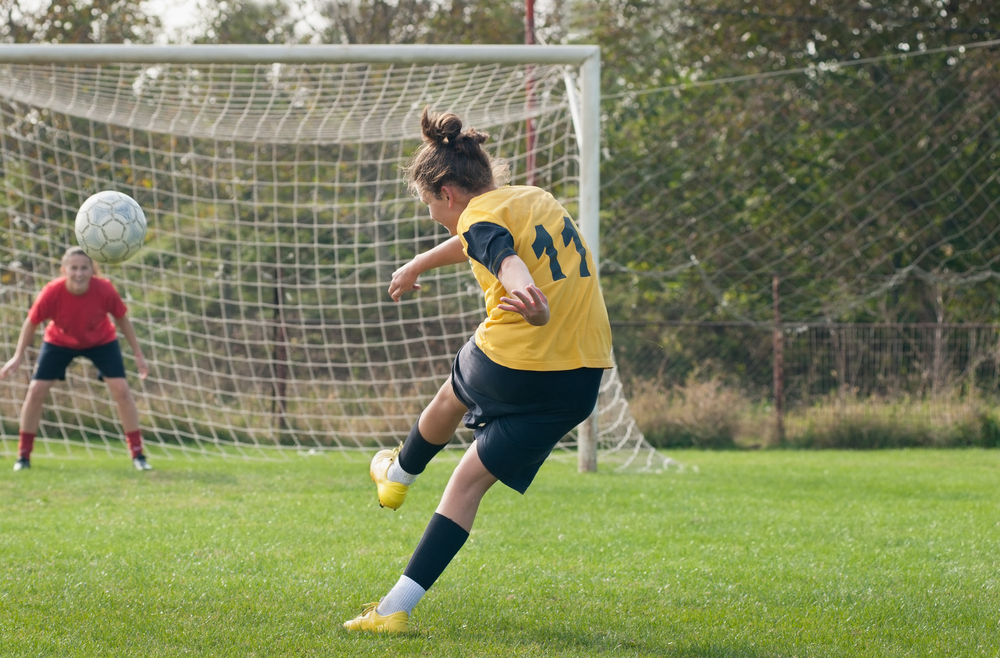In a pioneering study, the Here for Every Goal report demonstrates that team sports, particularly elite women’s soccer (referenced from here on in this article as ‘football’), play an important role in boosting young girls’ confidence. A startling 80 percent of individuals reported feeling more confident, with nearly half outperforming their counterparts in self-assurance.
Dr. Ali Bowes, Senior Lecturer at Nottingham Trent University, emphasizes the significance of football in the lives of young girls, stating, “The report highlights the significance of football in the lives of young girls. Having visible role models is central to encouraging girls to participate in the sport, which can bring a range of benefits, such as increasing self-confidence, developing social skills, and providing a sense of community among girls.”
Beyond the field: life skills and personal development
The paper digs into the overall impact of football, highlighting that the advantages transcend beyond the pitch. After careful consideration, it is concluded that “playing football is meaningful, with girls who play gaining life skills that go beyond participation in sport, directly contributing to personal growth and identity formation.”
According to the survey, as the game’s popularity grew, visible role models became increasingly important in motivating girls to engage. As a result, females experience a variety of benefits, including increased self-confidence, improved social skills, and a stronger sense of community.
Corporate confidence: the professional advantage of sports
The survey, sponsored by Women’s Super League title sponsors Barclays, shows that 94 percent of women in senior executive positions have a sporting background. Furthermore, 72 percent of these women believe that sports participation may greatly advance a woman’s career.
The paper emphasizes the importance of sports-acquired talents in the business sector, demonstrating that the skills developed in athletics were advantageous in the business world.
Global perspectives: Ireland’s business success through team sports
Drawing parallels, the paper references Irish research in which 90 percent of female CEOs participated in sports, with 88 percent recognizing the value of sports-acquired talents in the workplace. The findings highlight the universal benefits of team sports for women’s leadership and professional growth.
Compared to 20 years ago, the sport’s improvement should be welcomed, but Dr. Ali Bowes emphasizes that “there is still work to be done to normalize girls’ involvement in the game and make football truly accessible for women and girls.”
Football’s rise in schools: a sign of transformation
Women’s football is gaining popularity among girls, as evidenced by the significant increase in the number of schools participating in the Barclays Girls’ Football Schools Partnership, from 3,000 in 2019 to 19,992 by 2024. This surge represents a paradigm shift, allowing girls to engage with the sport on a larger scale.
Dr. Ali Bowes underscores the need for ongoing efforts, stating, “However, there is still work to be done to normalize girls’ involvement in the game and make football truly accessible for women and girls.”
Language evolution: football’s impact on creative expression
The BBC 500 Words survey examines language patterns among children and finds a considerable increase in the use of football-related phrases such as ‘Lioness.’ This increase is linked to the success of England’s women’s football team, with Lioness being mentioned more than three times than in 2020.
The report highlights, “Following the success of the England women’s football team, Lioness was used over a third more than in 2020.”
The Mary Earps effect: a goalkeeper’s impact on language
The survey also notes an increase in the use of the name ‘Mary,’ which is associated with England goalkeeper and BBC Sports Personality of the Year winner, Mary Earps. This linguistic shift implies that sports icons significantly influence children’s imaginative expressions.
According to the survey, “The name ‘Mary’ also appears more often in 2023 (+23 percent), which could be attributed to the popularity of England goalkeeper and BBC Sports Personality of the Year winner, Mary Earps.”











